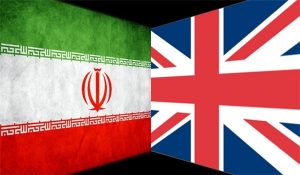The British Conservative Government’s Political Elite, and the European Union: Safeguarding British Interests (With Special Reference to: 2010 – 2016)
In Britain, where the rural population is small, where the economic conditions under which it lives are different, where the social structure on the land has remained more traditional, these disruptive tendencies have been avoided. Society did not have to reckon with the members of the farming community as an element apart”6. They were dealt with by political parties as if they were engaged in an ‘occupation’ or an ‘industry’ like any other. Major distinctions in British society are not based on geography, but on social and economic conditions. In contrast in the United States, France, Germany, or even Holland or Switzerland, it would not be possible to describe the structure of these countries, “without first considering in detail profound regional differences which are sometimes as important as national characteristics. These differences cut across nationwide social and economic problems”7. British society is thus essentially homogeneous and integrated, except in modern social class terms. In Britain national class divisions are altogether preponderant. In Britain, class divisions play an important role in the structure of British society.
The factor which determines class in Britain is occupation, but occupation depends today largely on education. Therefore, education is the under-pinning element in the British class system. Manual workers are early school leavers. Those who continue their education after the age of sixteen become white-collar workers. However white-collar workers are divided into clerical, managerial and professional sections. Again education plays an important part in bringing about such sub-division. Among those 15% who stay at school after their primary studies, only 4 or 5% find their way into universities. Oxford and Cambridge, which are also crucial mechanisms for integration of the elite, take only about one-eighth of the total student population. On the other hand, public schools superimpose a further distinction in the class system which is no less important. “The public schools have greater academic – particularly scientific – facilities. Boys are taught and educated on a more individual basis”8. Most of the boys who go to the best public schools are sons who belong to the upper strata of the society and to the aristocracy. If public schools have not been successful in giving attitudes to their alumni at least they have been successful in shaping socially integrated elite by giving them contacts. These contacts facilitate their careers and enable them to have more influence in the posts which they eventually occupy.
Pages: 1 2 3 4 5 6 7 8 9 10 11 12 13 14 15 16 17 18 19 20 21 22



